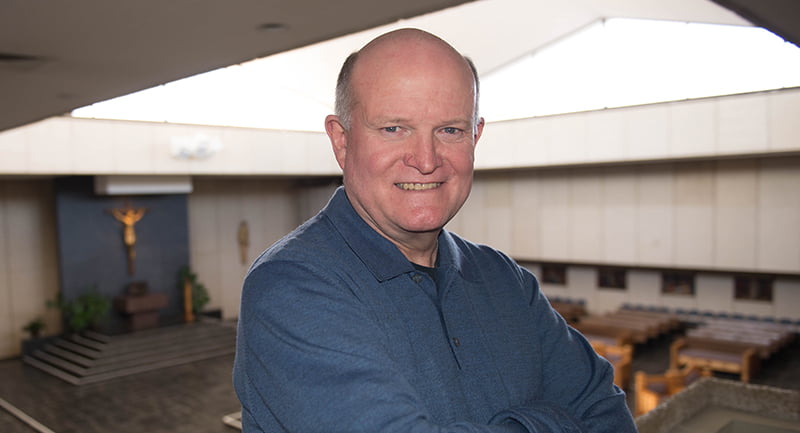by Vince Eimer
Editor’s Note: This is the last installment of Vince Eimer’s seven-part series on journeying through the Lenten season
Crucifixion. Does the word convey any terror to you?
Have you heard it so often from such a young age and seen such a vast array of crucifixes over the years that it has been rendered tamed? It was not that way for Jesus and his followers. There were many examples of people the Romans left hanging for days struggling to breathe, moment by moment, until the muscles of their legs could no longer raise their bodies for a breath. “Here is what we will do to you if you step out of line.” Crowd control through primal fear.
It was a time of great unrest, a time when many were expecting the Messiah to come soon and drive out the deeply hated Romans and restore a free Israel. The Romans noticed when anyone drew followers. It was always a threat.
The Jewish authorities, who cooperated with the Romans and knew how violently they would respond to any threat, also noticed. Jesus knew where it was all heading as he did the Father’s will to bring the life of God to the people of his time and to us. Crucifixion.
Up to a point, our response would be like Christ’s: “Father, take this cup from me.” We all have difficult times in our lives when we have asked God to remove our cup from us.
For some, it is when a deeply treasured relationship ends painfully, either suddenly or through slow erosion over the years. For others, it is the various crosses that come because of our bodies breaking down: cancer, Alzheimer’s, heart trouble, and on and on.
Many suffer because of the pain endured by those they love and whom they can only help in small ways.
Some will respond with an act of their will to not be overcome by suffering. They will stoically endure.
Others will respond with depression or even despair, without hope. Then there are those who will abandon God when they need his grace: “He did not answer my prayers, so why should I have anything more to do with him?” A hurt child.
When deeply suffering, Jesus is our role model in how to respond to our agony. Each time he prays for the cup to be taken from him, he ends up by asking the Father’s will be done. He trusts in the Father because of their close relationship, one we can also develop in prayer.
Look closely at the difference in Jesus in his agony — “Take this cup” — and in his acceptance: “Thy will be done.” Strength and peace come with acceptance. Join your suffering to that of Jesus on the cross to help save souls. Share in his redeeming work.



